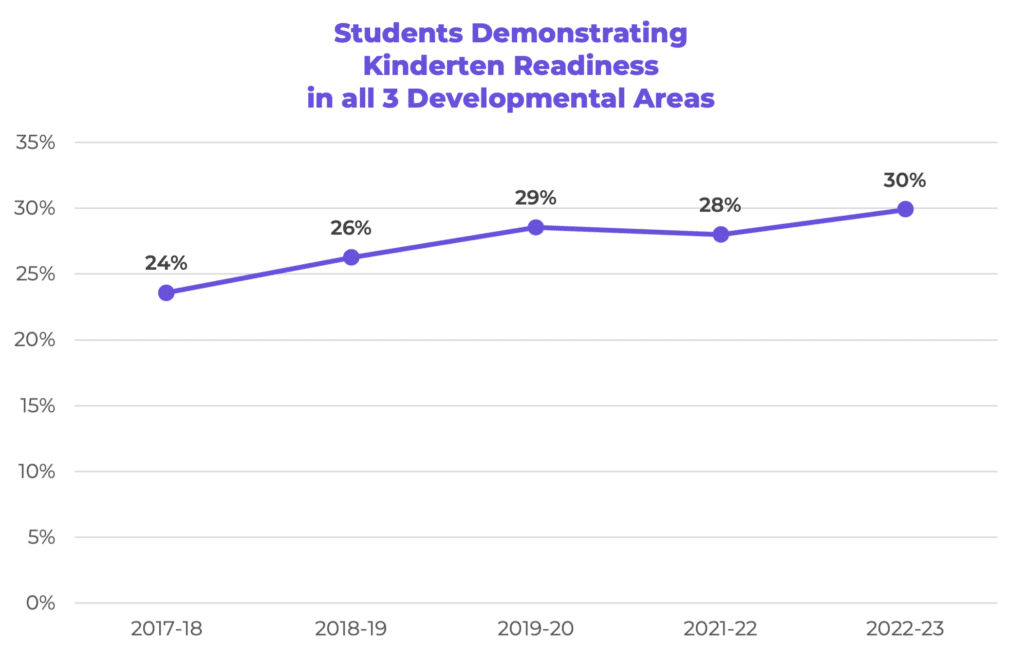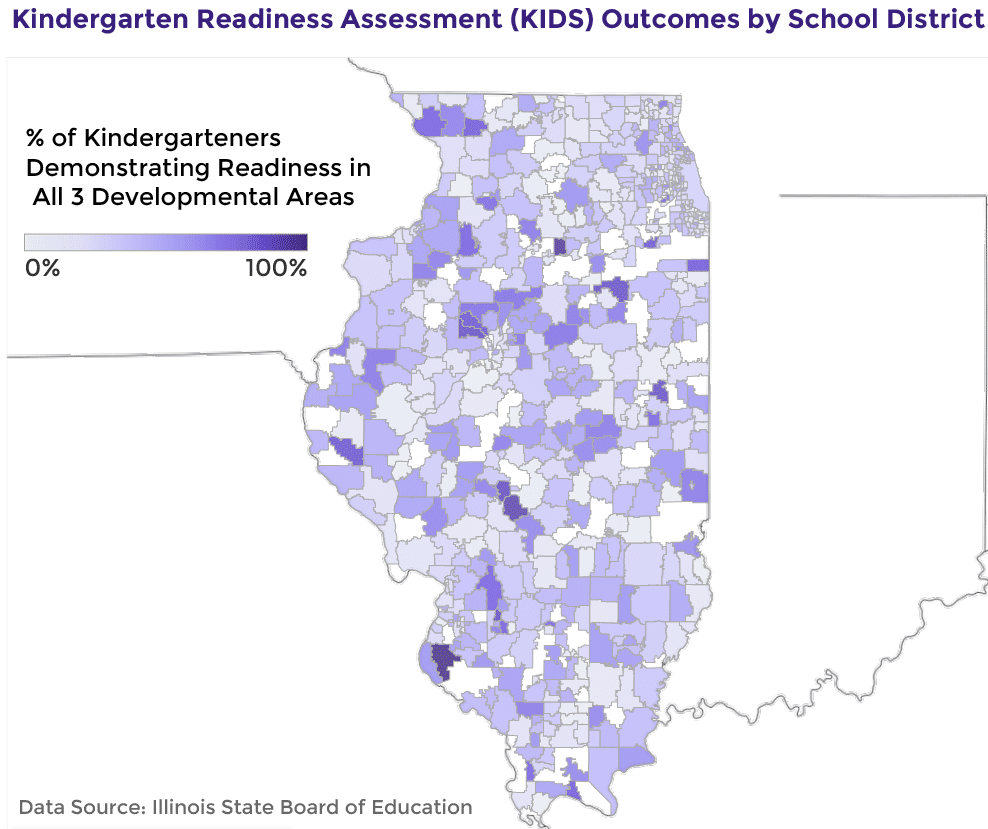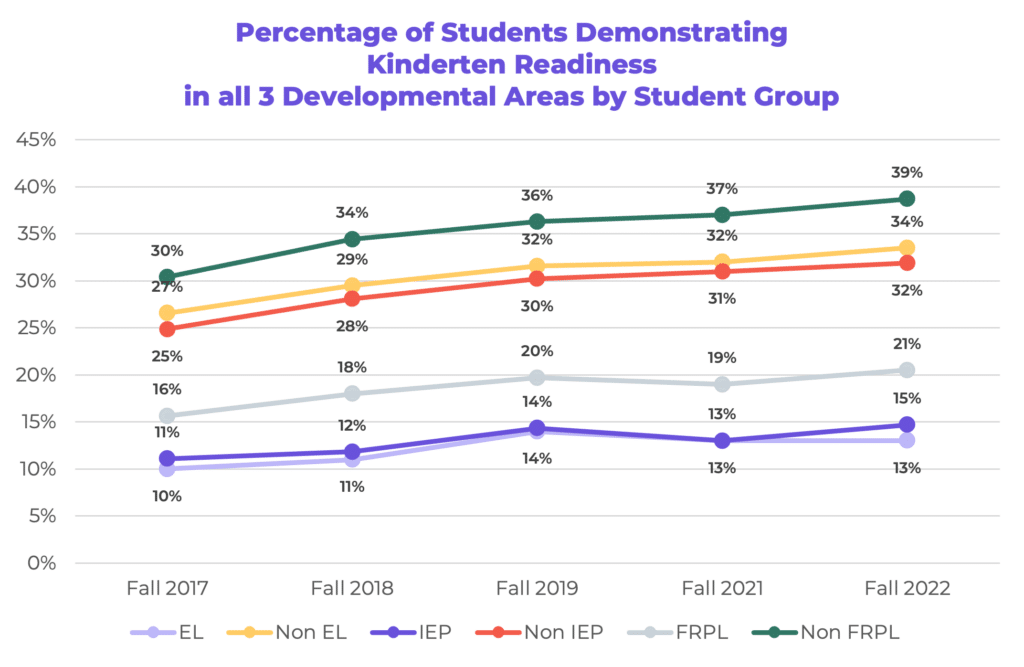The Illinois State Board of Education (ISBE) released its next installation of Kindergarten Individual Development Survey (KIDS) data, providing a snapshot of the skills young children had as they entered kindergarten in the 2022-2023 school year. The COVID-19 pandemic made it difficult to implement the tool and collect the valuable information it provides, but the data the state gathered makes it plain that while COVID-19 disruptions have had an impact, we are heading back to pre-pandemic readiness levels.
As noted in the recent KIDS report, 30% of all students in Illinois demonstrate Kindergarten readiness in all three developmental areas (social and emotional development, language and literacy development, and math), a steady increase that puts the state slightly above pre-pandemic levels. Indeed, since the launch of KIDS in 2017-2018, and despite pandemic challenges, the percentage of students rated “Kindergarten ready” in all three developmental areas has increased by 6 percentage points, reflecting a positive upward trend over time.


While state-wide numbers reflect improvement over time, the percentage of students demonstrating Kindergarten readiness in all three domains varies widely across lines of income, language and learning style. Persistent early gaps between student groups underscore the need for targeted support both during the early years, and in the early primary grades – particularly for students identified as English Learners. Currently implementation challenges exist to assess and identify English Learners but this implementation issue is being addressed by the KIDS Advisory Committee.

Other researchers are beginning to investigate whether and how KIDS relates to later academic performance. A new report from the Illinois Workforce and Education Research Collaborative (IWERC) concludes that KIDS scores are predictive of 3rd grade test scores in Math and English language arts (ELA). Yet, even with similar Kindergarten Readiness scores, Black and Latinx students are less likely to be proficient in 3rd grade math and ELA compared to White students.1
Some of these upward trends are encouraging, but persistent gaps require further work and study in the next few years. To address these gaps, assessment directors and school and district leaders should support administrators and teachers by reducing the amount of costly and redundant kindergarten readiness assessments, promoting the importance of a play-based environment in kindergarten, refering districts to KIDS coaches so they can acquire resources for implementing play-based learning, and ensuring there is an appropriate and full implementation of KIDS. It is too soon to draw any connections or conclusions, but we will note that these recent, modest increases coincide with the first year of Governor Pritzker’s Smart Start IL plan – a multi-year effort to increase funding for early childhood over a period of four years. The administration also plans to create a new Department of Early Childhood, which provides an opportunity for the state to create transformational changes that will benefit the early childhood workforce, young children and their families. This transformational work should be paired with sustainable investments and improved data collection, and we will all be watching to see if these coordinated efforts benefit our youngest learners.
1Kiguel, S., Cashdollar, S., & Bates, S. (Forthcoming). Kindergarten readiness in Illinois: Trends and disparities in readiness using the Kindergarten Individual Development Survey (KIDS). Chicago, IL: Illinois Workforce and Education Research Collaborative (IWERC), Discovery Partners Institute, University of Illinois.




